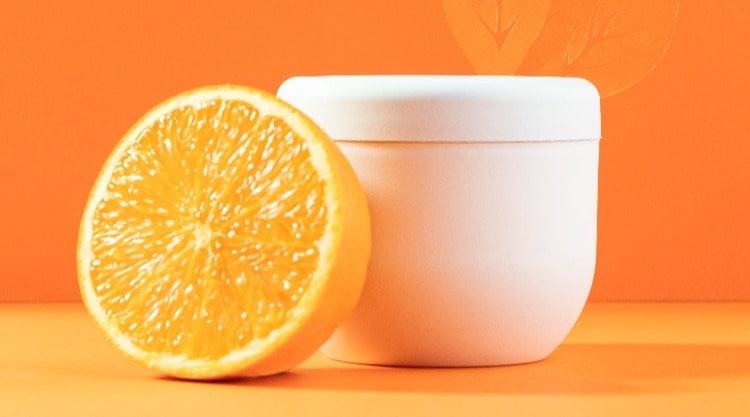Vegan Cosmetic Analysis
Vegan Cosmetic Product Certificate

Today, with the changing perception of beauty, the sector with a large market after food products is the cosmetics sector. Cosmetic products go through many tests and analyzes until they reach the consumer. These analyzes are primarily important for human health as cosmetic products come into direct contact with human skin for a long time.
Another area that is growing day by day in the cosmetics sector is the production of “Vegan Kozmetik” products. Veganism is not only a diet but also a way of life. Since vegans do not accept an animal-based product in any of the products they consume or use, the cosmetics industry takes the necessary steps in this regard.
Many cosmetic companies support vegan lifestyle by producing vegan cosmetic products. Of course, there are some conditions in the production of vegan cosmetic products.
The main ingredients that should not be found in vegan cosmetics are:
- Honey: It is used in cosmetic products such as cream, lip balm. Vegan alternatives include maple and brown rice syrup.
- Beeswax: It is used in creams, lip creams, lotions, products such as foundation and mascara. Vegan alternatives include soy wax, candelilla wax, and bay wax. Plant oils, such as olive and argan oils, are also very intense moisturizers.
- Lanolin: It is used in products such as sunscreen, lip balm. Unrefined coconut oil, organic olive oil, shea butter and rice bran oil are vegan alternatives.
- Collagen: It is used in anti - aging cosmetic products. Vegan alternative ingredients include soy protein, almond oil, and amla oil.
- Albumin: Used in lotions, conditioners, concealers, anti-aging serums. There is absolutely no vegan-friendly alternative to this.
- Carmine: It is used as red paint in lipsticks and blushes. Vegan alternatives include beet or radish juice.
- Cholesterol: Used in shampoos, eye creams, anti - aging products. Alternatives to be considered are sterols from plant sources.
- Gelatin: Nail care products are used in gel cream products. Vegan-friendly alternative ingredients include carrageen, seaweed, and fruit pectin.
- Guanine: It is used in paints, cleaning products, perfumes, lipsticks, nail polish, shampoos. Synthetic pearl, aluminum and bronze particles are all vegan alternatives.
- Tallow: It is used in products such as nail polish, liquid and solid soap, foundation, shaving foam.
- Squalene: Used in products such as sunscreen, lip balm.
- Amber: It is used in perfume types.
- Estrogen: Used in lotions, creams and perfumes.
- Retinol: Vitamin is used in food supplements.
- Lecithin: It is used in products such as eye cream, lotion, hand cream, soap, shampoo. Synthetic and soybean lecithin are vegan-friendly alternatives.
- Keratin: Shampoo is used in hair care products. Vegan alternatives include almond and butter oils, as well as soy protein.
- Placenta: Used in anti - aging products.
- Caprylic Acid: It is used to prevent bacteria in soap production, perfumes and various cosmetic products. Alternatives to watch out for include coconut and other plant-based oils.
- Glycerin: It is used in products such as soap, lotion, mouthwash.
- Chitosan: It is used in deodorant, hair and skin care products. Alternatives can be found in fruits and vegetables such as legumes, raspberries and dried apricots.
- Biotin: Used in shampoos.
- Allantoin: It is used in creams and lotions due to its moisturizing and healing properties. Herbal and synthetic versions are available: comfrey extract
- Alpha Hydroxy Acids: Used in anti-wrinkle products and exfoliants. It can be obtained from plant or animal, if derived from animal, it is a lactic acid found in muscle tissue and blood. Plant alternatives are found in plant milk sugars and include citric acid, glycolic acid, and salicylic acid. Synthetic versions are also available.
- Arachidonic acid: A fatty acid found in animals and humans, usually derived from animal liver. Used in skin creams and lotions. Vegan-friendly alternatives include aloe vera, tea tree oil, calendula, and synthetic versions.
- Carotene: A pigment found in animal tissue, used as a colorant in cosmetics. Plant source version available.
- Elastin: Similar to collagen found in cows and used in skin care products. Synthetic versions are available.
For vegan cosmetics dWhat is important is that the product produced is "Cruently-free" without being tested on animals, which means cruelty-free. The methods of tests and analysis are as important as the content of vegan cosmetic products.
Vegan Cosmetic Product Types
FACE: Blush, Brushes, Concealer, Eyeliner, Eye shadow, Face lotion, Foundation, Lipstick, Lip balm, Mascara
HAIR: Shampoo, Conditioner, Hair spray, Hair dye
SKIN CARE: Deodorant, Lotion, Tanning products
NAIL: Nail polish, Nail Polish remover
BATH: Bubble bath, Shaving Products, Soap
CLICK HERE TO GET A PRICE OFFER.

